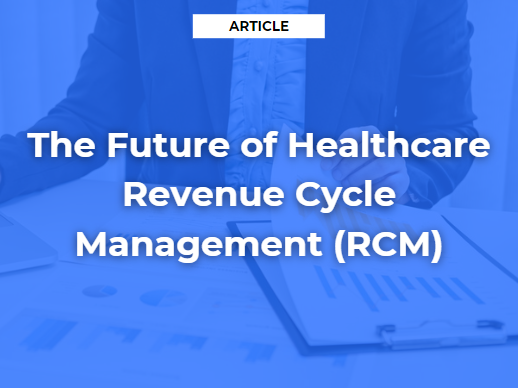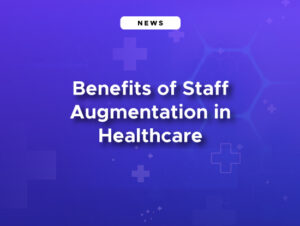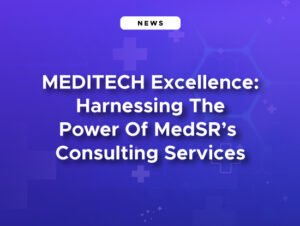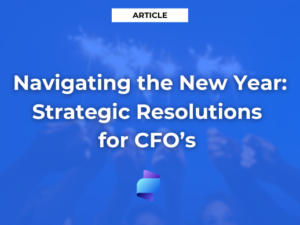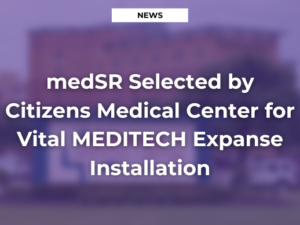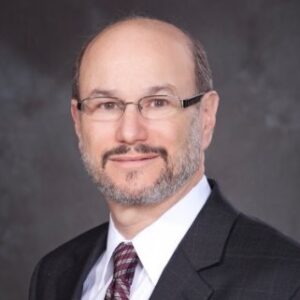
Bruce Adler
medSR
Vice President, Revenue Cycle Practice Director
COVID-19 has served as an accelerant in driving significant healthcare trends, most notably within Revenue Cycle Management (RCM). Healthcare organizations struggle to balance revenue fluctuations, a decrease in cash flow, higher cost of service, and lower productivity. Payers continue to negatively impact financial performance with increasing rates of denials, higher patient co-payment responsibilities, new demands on service authorizations, and an unwillingness to partner in moving to one-to-one connectivity to reduce the cost of service. Concurrently, providers are trying to improve the patient experience and relationships with the provider community. medSR has helped clients navigate through these turbulent times, focusing on improving processes across and deep within an organization. Revenue Cycle Management is not solely the responsibility of finance and the Business office but also integrates with Access Care, Case Management, Revenue Integrity, Medical Records, Managed Care Contracting, and external vendor partnerships. We develop new process flows and use technology to improve the healthcare customer experience. We understand that healthcare organizations have multiple customers to satisfy, including Physicians, Hospital Clinical Departments, external financial institutions, regulators, and the patient. medSR serves as the organization’s change agent, driving, developing, and implementing new process flows, new organizational structures, and optimization of technology tools. Our experienced Revenue Cycle professionals guide the organization’s journey to Revenue Cycle excellence.
Organization and Staff Development
The high rate of staff turnover experienced by organizations has highlighted the need to work closely with Human Resources to generate a pipeline of qualified candidates and ensure candidates are trained and expectations are clearly communicated. The stay-at-at-home work environment has furthered the need to develop mechanisms to measure and monitor staff performance. With the stay-at-home work model, new employees can no longer shadow one another to watch and learn. A formalized, content-rich curriculum needs to be developed where trainers are utilized to ensure new staff members are competent and perform their duties as required. The new environment has also reinforced the need to cross-train staff to fill in gaps as they develop. Organizations can now examine their centralized or decentralized structures and learn how to optimize their staffing to align with volume fluctuations. medSR has helped healthcare organizations meet these challenges by utilizing its extensive recruiting capabilities to fill open positions that internal HR recruiters cannot. medSR has recruited and trained staff so they can begin working immediately. medSR provides staff augmentation services where we backfill staffing shortages on a temporary or permanent basis. We offer a variety of options to our clients, from retained search to the possibility of renting staff to bring them on full-time.
Process Change and Transformation
Over the last several years, events have required organizations to reevaluate how and what they need to do to survive. With certainty, the status quo is not good enough. Organizations must review what they are good at, where they have process or performance gaps, and what alternative options can help fill those needs. medSR partners with healthcare providers to perform an operational assessment where we are an organization’s set of eyes, helping to objectively identify areas of performance improvement opportunities. We accomplish the assessment through observation, interviews, and data analysis. Our review concludes with analyzing gaps, opportunities, and efforts required to remediate. Organizations turn to medSR to develop the roadmap to help them remediate the gaps and develop a strategy to move forward. medSR and its experienced professionals are the facilitators of change, working with the C-level executives down to the staff level. We help organizations develop and strengthen their core competencies and develop an approach to mitigate risks in identified areas. An area of significant focus is Access Care. The quality of work within Access Care is the engine that drives successful Revenue Cycle Management for an organization. We evaluate the wellness of activities such as scheduling, insurance verification, securing service authorizations, financial counseling, point-of-service collections, and pre-service. We identify process breakdowns in these critical functions by utilizing denial information and performing root cause analysis. Cash shortfalls and increases in accounts receivables are often the by-products of process breakdowns within the Access Care and Medical Records Departments. Business Offices and Patient Financial Service (PFS) Departments have also seen a shift to work-at-home, making it more challenging to monitor productivity and performance. PFS must continue dealing with increased denials from insurance carriers, many without cause. Staffing shortages, increased volumes, and high denial rates contribute to growth in Accounts Receivables (AR). medSR has helped clients by performing a deep dive root cause analysis of denials and assisting organizations in developing an action plan to mitigate future denial activity. This approach often starts with an analysis of the data used by a multi-department workgroup to formulate an action plan and means to hold individuals accountable. medSR provides cash acceleration and file reduction services to help organizations reduce levels of AR and bring in much-needed revenue. We work within your system, documenting all actions taken. Unlike other collection services, we report on contributing factors contributing to AR build-up and help correct those barriers. We have both onshore and offshore trained and employed Accounts Receivable resources. Organizations have turned to us to medSR to outsource parts or all billing and follow-up functions. Our cost structure is a perfect fit to outsource high-volume, low-dollar portions of the receivables.
Technology as an Enabler
The revenue Cycle process improvement’s future heavily depends on using technology as the enabler. As stated previously, staffing models have changed, and resources are limited. Revenue Cycle Management needs to optimize current and future technology tools to fill the void. Healthcare organizations must evaluate the buy, build or configure decision when looking at tools to support Revenue Cycle Management. medSR has worked with clients to scope out system requirements, review RFPs and align vendor functional to facility needs. Technology tools to support such functions as Referral Management, Service Authorization, Medical Necessity, Price Estimation, and Propensity to Pay are no longer a nicety but a requirement to meet today’s demand for good customer service, financially transparent accounts and reduce the risk of not getting paid. medSR works with our clients to gain the full functionality of these tools but also helps to develop alternative workflows and challenge the old ways of doing business. The current technology frontier includes using AI and BOTS to complement existing operations. medSR helps establish and implement BOTS technology to support repetitive tasks so staff can be redeployed to bring true value to the Revenue Cycle operations.
In Summary
An organization’s success depends on its core competencies, the alignment of its staff, and the availability of technology tools to support current and future work requirements. medSR serves as the organization’s change agent, and our consulting subject matter experts bring the vision and know-how. We create, develop, and implement the roadmap to ensure future revenue cycle excellence.
Author: Bruce Adler, Vice President, Revenue Cycle Practice Director
